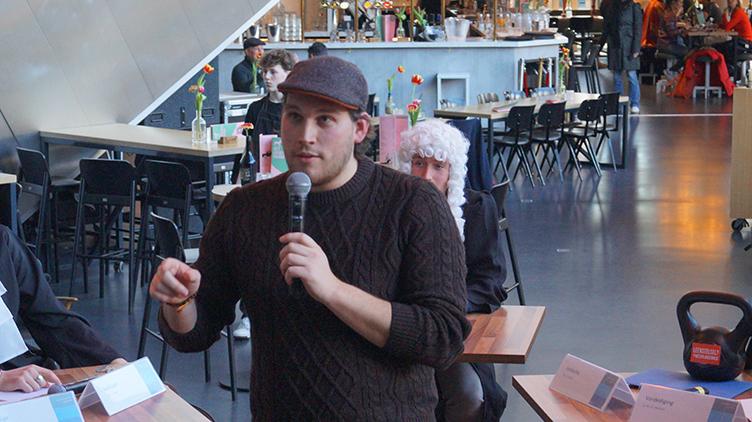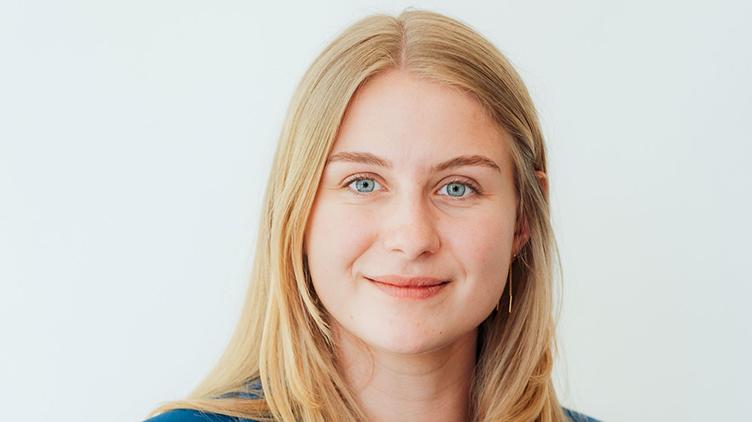Student organisations LSVb and ISO oppose BSA
'The BSA is simply another form of selection'

In the Netherlands, there is usually a certain number of credits required of first-year students in order to be allowed to continue in the programme. This practice is called "binding recommendation advice" and is best known by its Dutch acronym BSA. The standard generally lies between 40 and 60 credits but there are exceptions for students in certain situations.
The Dutch Minister of Education, Robbert Dijkgraaf, has recently announced plans to lower the bar to a maximum of 30 credits in the first year and another 30 credits in the second year, with the goal to relieve the pressure to perform experienced by many first-year students. It is not certain that Dijkgraaf's plan is going to be adopted, however, because the biggest coalition party, VVD, is against it. Research universities didn't take long to react: they are basically not keen on the idea as they would rather deploy the BSA in their own way or in consultation with their faculty and university councils. Now, it is time for the organisations representing the interests of students at the national level to voice their position as well.

Joram van Velzen photographed at TivoliVredenburg during a play about the lot of the "unlucky generation" of students. That's the nickname given to those who pursued higher education degrees in the Netherlands between 2015 and 2022, when a grant for students was scrapped in favour of a loan system. The grant is going to be reinstated in September 2023. Photo: DUB.
Right place
Joram van Velzen, chair of the Dutch Student Union (Dutch acronym: LSVb), thinks this is a "tough" discussion. “On the one hand, there are concerns about the pressure to perform and students' mental health. On the other hand, people should not be allowed to stay enrolled forever without any encouragement to graduate.”
Nevertheless, LSVb would like the BSA to be abolished. According to the union, the mechanism does not achieve its purpose. "It ends up selecting students on the basis of credits, whereas the right question ought to be whether students are in the right programme,” ponders Van Velzen, referring to research by VU Amsterdam showing that 85 percent of the students kicked out of a programme because they didn't earn enough credits just switch to the same programme or a programme in the same field at a different university. So, what is the point of getting rid of them?
In his view, it would be preferable for universities to verify whether they can supervise students better. In general lines, Van Velzen is enthusiastic about the minister’s proposal, which he considers a step in the right direction. After all, Dijkgraaf's goal is precisely to make universities pay more attention to supervision. However, what LSVb would really like to see is the abolishment of the "binding" aspect of the recommendation. The organisation finds that the choice of leaving the programme should be up to the students themselves.
Difference of opinion
The National Students' Association (Dutch acronym: ISO) is opposed to the BSA as well, but the organisation represents student councils from both research universities and universities of applied sciences. The latter is in favour of the minister's proposal apart from four institutions, which co-signed an op-ed written by the rectors of research universities defending the BSA.
“It’s a shame they felt that was necessary”, says ISO chair Terri van der Velden. “We are aware of the differences of opinion. We know that the members of the four student councils are divided as well: after all, they don’t represent the opinion of every student in their city.”
Van der Velden explains that ISO’s standpoints are all defined in agreement with its members. “But the BSA is one of the topics on which we don't even need to discuss much. There is always a substantial majority in favour of this standpoint.”
She argues that the BSA is supposed to help in terms of orientation and referral, but that is not what happens at present. “It is simply another form of selection.”

Terri van der Velden, voorzitter ISO. Foto ISO.
Model student
According to her, the proponents of the BSA base their arguments on an image of the "model student", someone who already has a considerable chance of completing the programme anyway and who even does other things on the side. In short, someone for whom the BSA is not actually a problem but rather an incentive to carry on studying.
“We actually stand up for those who do not fit that mould,” states Van der Velden. “The ones who cannot complete their studies in the way they would like because of all the pressure. Those to whom the BSA is disproportionately severe.”
Research universities are afraid that the quality of education will drop if students with few credits are allowed to continue on in the study programme. However, it is not the purpose of the BSA to improve the quality of teaching, Van der Velden argues. Rather, it is intended to help students realise whether or not they are in the right place. That's why she believes the emphasis should be put on that.
Dijkgraaf aims to make universities pay more attention to the supervision of students, but some wonder whether that will be possible. After all, everyone always wants better supervision. But Van der Velden feels that it can be done, as that's exactly what happened in her study programme: Governance and Organisation at UU. “In the first year, we got a huge amount of supervision. It takes a while to get used to being a university student, so it’s good if someone asks you if you feel as though you’re in the right place, whether or not you feel at home. I was really lucky in that respect.”
Politics
Minister Dijkgraaf has sent his proposal to the House of Representatives. MP Hatte van der Woude (from the VVD party) is scathing about it. “I don’t like it,” she told the national newspaper NRC Handelsblad. “I understand that the minister empathises with students who feel under pressure. But you're not helping them by lowering the bar so much.”
Dijkgraaf’s predecessor, Ingrid van Engelshoven, also proposed lowering the standard to 40 credits in the first year, but she ultimately failed to get a majority of the House behind her. But the current proposal is different from the previous one in that study programmes will be able to get rid of the students who are lagging behind after the second year too. The outcome of the debate is hard to predict.